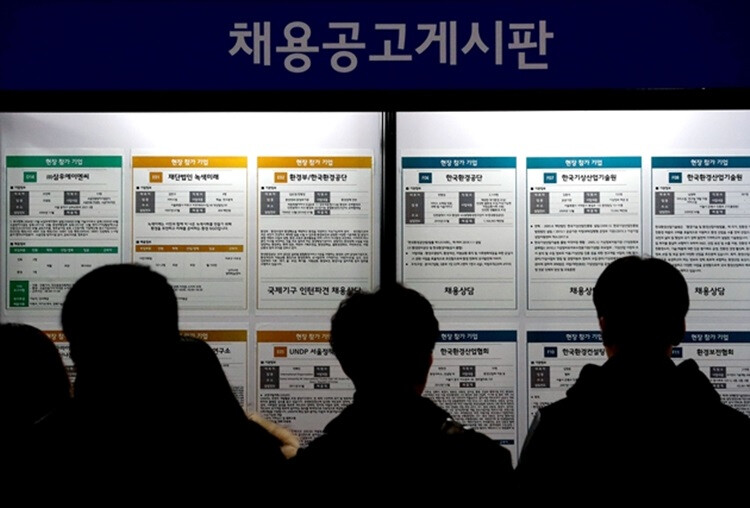
South Korea's job market is rapidly deteriorating, with young people bearing the brunt of the downturn. Recent data reveals alarming trends in youth unemployment and employment rates, coupled with a significant decline in manufacturing jobs. The situation is so dire that many young adults are giving up on their job search altogether, choosing instead to "simply rest."
Youth Unemployment Rate Hits 4-Year High
According to the Korean Statistical Information Service (KOSIS), the youth underemployment rate, a measure that captures the number of people who are employed but want to work more hours, reached 16.4% in January. This marks the highest level in nearly four years, indicating a sharp rise in the number of young people who are either underemployed or have given up on finding suitable work.
The official youth unemployment rate stood at 6.0% in January, unchanged from the previous year. However, this figure fails to capture the true extent of the problem, as it does not include those who are underemployed or have stopped looking for work.
Rise in Underemployment and "Resting" Youth
The surge in underemployment suggests that many young people are taking on temporary or part-time jobs due to a lack of stable, full-time opportunities. This is supported by data showing a significant increase in the number of "time-related underemployed persons," who work less than 36 hours per week but want to work more.
Furthermore, the number of young people who are "resting," meaning they are neither working nor looking for work, has also been on the rise. This indicates a growing sense of discouragement and resignation among young adults who are struggling to find jobs in a shrinking market.
Manufacturing Jobs Plummet to 12-Year Low
The manufacturing sector, traditionally a source of stable, high-quality jobs, has also been hit hard by the economic downturn. In January, the number of manufacturing jobs fell to its lowest level in 12 years, raising concerns about the long-term health of the sector.
Government Intervention and Policy Recommendations
The government has acknowledged the severity of the situation and has implemented various measures to address the youth unemployment crisis. These include expanding job training programs, promoting entrepreneurship, and creating more public sector jobs.
However, experts argue that more comprehensive and long-term solutions are needed to tackle the root causes of the problem. They recommend policies that promote sustainable economic growth, create more quality jobs in the private sector, and improve the skills and competitiveness of young workers.
Conclusion
The current state of South Korea's job market is a cause for serious concern, particularly for young people who are struggling to find their footing in a rapidly changing economy. Without decisive action from the government and concerted efforts from all stakeholders, the youth unemployment crisis is likely to worsen, with potentially dire consequences for the country's future.
[Copyright (c) Global Economic Times. All Rights Reserved.]






























